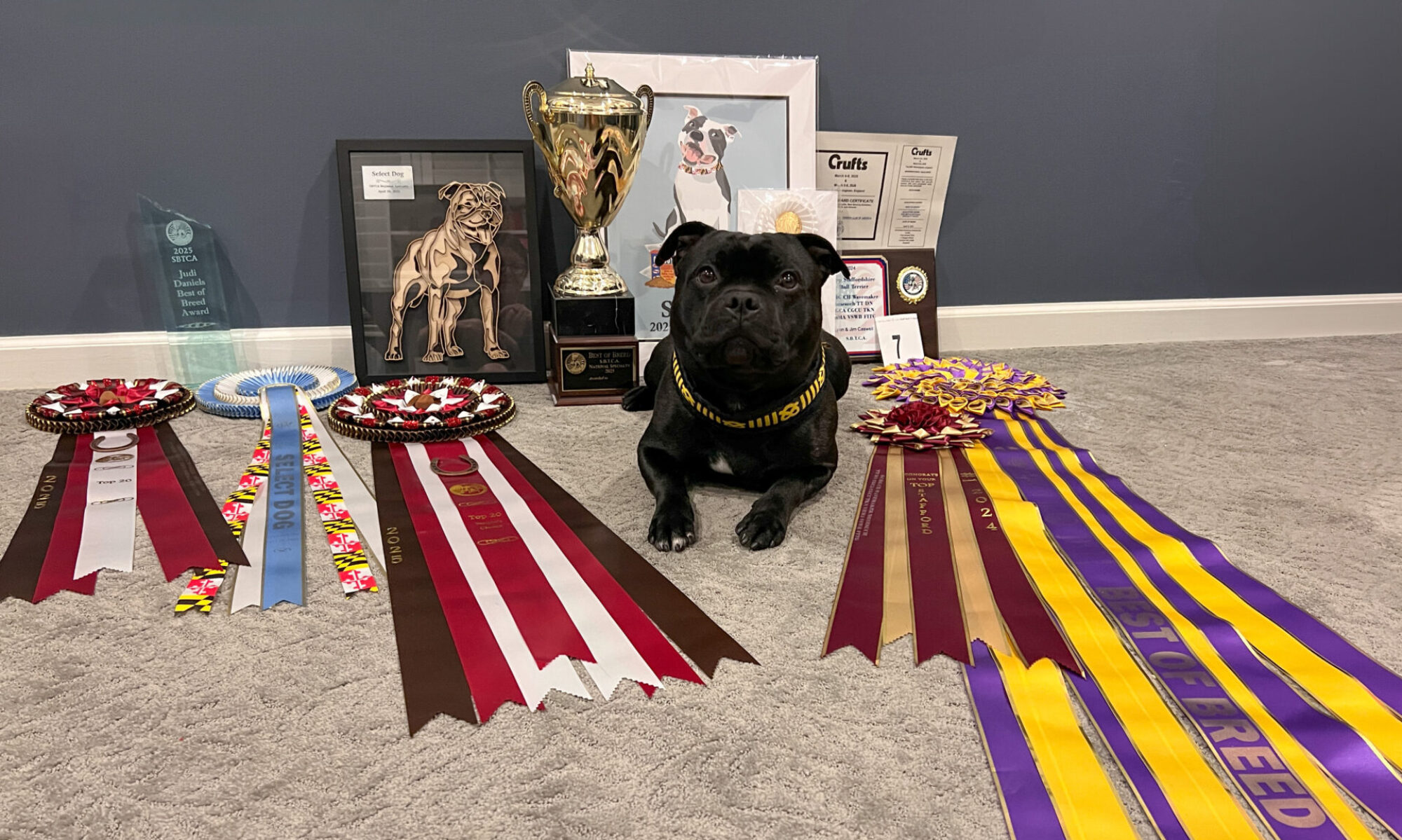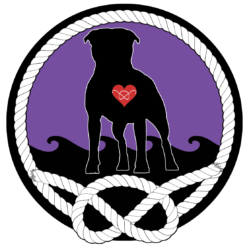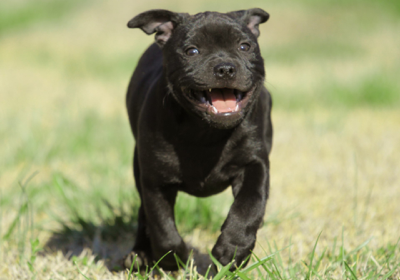10 Questions you must ask your breeder – AFTER you know she’s responsible
by Joanna Kimball on July 19, 2011
There are a thousand web pages out there that will give you a list of questions to ask a breeder. They’re almost all oriented toward helping you find a person who’s above a certain level of responsibility – does she attempt to preserve or improve a breed, does she health test, stuff like that.
And those are good lists. I am always glad when I get a puppy buyer who is reading off what is obviously a laboriously collected set of questions. It’s a great sign that they’re doing their homework and research.
What you may not know is that your work isn’t done yet – not if you’re really serious about this. If you stop now, if you get the answers you need and then buy yourself a puppy, you WILL get a well-bred puppy. You’ve done that basic, extremely important job. But what you have NOT done is found out very much about whether you’re going to be happy with this breeder for the next (hopefully) fifteen years.
I’ve often spoken of dogs in terms of brands – because I think that the best way for most people to think of the way purebreds are produced is to put it in terms of the real thing or counterfeits. You always fall in love with the real thing – nobody ever finds a picture of a “Coach” purse and says “Wow, I like that better than the $300 version!” You WANT the real one. You get suckered into paying for the fake one because you convince yourself that it’s enough like the genuine article that you’re actually smarter to get the knock-off.
We all knows what happens to the knock-offs, though. You wear them for a few days and then the finish begins to wear off the Leather-Like (R) surface or the Tiffanee ring leaves a green stain on your finger, and they end up in the back of the closet. On the other hand, the ring you killed yourself to pay for at the real counter is a signature piece that you wear every day for the rest of your life and leave to your grandkids.
Those basic questions for the breeder, the ones you ask first, establish whether you’re buying the real brand or a counterfeit. The questions I’m going to suggest you ask next are the ones that tell you what kind of “store” you’re buying from.
Please, please understand that THERE ARE NO RIGHT OR WRONG ANSWERS TO THESE QUESTIONS. They define certain aspects of the relationship you’re going to have, and my ideal answer is going to be different from yours. In fact, it may be radically different. If you ask me these questions, my answers may tell you that in fact you’d be quite unhappy buying from me, but thrilled with the experience of buying from someone else. That wouldn’t hurt my feelings – in fact, I want it.
I want you to think about them because I have seen so much good come from lifelong friendships that are formed when people who are on the same wavelength are involved in a dog transaction (some of my most wonderful friends are people I’ve either bought dogs from or used a stud dog or whatever), and I’ve seen so much personal hurt and misunderstanding come from two people who are both terribly well intentioned but who have completely different ideas of how the breeder-owner relationship should be.
So here they are:
1) Why did you personally get involved in this breed?
2) What do you consider a successful breeding?
3) Have you ever had a real disaster of a litter?
4) Why did you choose these particular two dogs?
5) Do you often get fluffs and mismarks? (Substitute whatever the biggies are in your breed – whites in boxers, for example, or long-coats in Shepherds; do enough research to know what they are.)
6) What kind of owners tend to do best with your dogs?
7) What do you feed your dogs and what would you like buyers to feed?
8) What’s one thing people often don’t know about this breed that you wish they did?
9) If there was one thing you could wave your wand and fix in your breed, what would it be?
10)If I buy a puppy from you, do you call me or should I call you?
See what I mean that there are not right or wrong answers to these? What they’re going to do is let you know what the priorities of the breeder are, how he or she perceives himself or herself in the grand scheme of the breed, reveal attachments they have with other breeders or owners, and (perhaps most important) tell you whether this breeder wants you in bed with them or at arm’s length. There are some breeders who want (and should get) weekly updates for the first year. There are others who don’t mind if you never call them again. Will the first drive you batty or make you feel loved? Will the second give you the freedom you crave or does that scream “uncaring”? Your job is making sure your breeder is close to you on the spectrum, or that you can meet his or her expectations without strain.
If I ask these ten questions questions and the answer to the “successful” and “disaster” litter questions are two sides of a single coin, I know what the top priority is for that breeder. If they center on show success, conformation, or absence of faults, that’s likely to be a breeder that I’d go to for a “flyer” show dog. If they instead dwell on how happy or unsatisfying the placements turned out to be, that’s a breeder who cares a lot about relationships. If I hear a lot about health – or personality or herding success or therapy success or fill in the blank – I can tell if this breeder and I have the same definition of an A-plus job.
I personally think it’s very revealing to explore the idea of those cosmetic faults that tend to be show ring DQs or such big no-nos that they’re in effect DQs. A breeder who says “Oh my goodness, I would never EVER do a breeding that would make fluffs – it’s my job to make as many dogs who could be shown as possible!” is a very different person than one who says “I adore fluffs and have kept several; I never worry about them in my breeding.” Neither one is right or wrong, but if you’re looking for a very reliable pedigree with zero coat in it you’re going to be happier with the first. If you would rather have a breeder who’s a bit more loosey-goosey (and maybe likes “cute” even more than she likes “correct”!), the second breeder is likely to be your gal.
Now that magic wand question is a bit of a subtle one – I love to ask it because there’s an answer I want to hear and if I do I am thrilled. But I’d honestly ask it even if I didn’t have something in mind, because the answer is going to tell you something about that breeder’s long-term plans and big-picture goals. “Group placements” is a different answer than “Temperament.” “Longevity” is a different answer than “No dogs in rescue.” They’re all GOOD goals. But one type of breeder is going to be your better fit.
Number 8, the one thing people don’t know about the breed, is the one I want to address last, because it’s the one thing on there that could cause you to not just walk away from a breeder but walk away from a breed entirely. It’s a very simple question with some very high stakes.
For example, if I told you that the one thing I wish people knew about Great Danes is that they are NOT big brave dogs but in fact are very soft and sensitive and a huge minority of them have fear issues – that we usually DON’T get the TV version of the breed, that they’re not suited to dog parks, that they can be sharp with other dogs and do a lot of damage even when behaving normally – if you’re honest with yourself you might realize that the picture in your head that you had of your life with this dog is no longer correct.
At that point the huge temptation will be to say “Well, none of the books I read say that, and I am sure she’s wrong – or I am sure the puppy I get won’t have that issue.” But I’m going to honestly BEG you to trust her when she says whatever it is she says. It doesn’t mean you don’t get the dog, but it might mean you need to put down the phone and have a very serious conversation with your spouse or your roommate or you obedience trainer.
One final hint – ask these in the course of a normal relaxed conversation, or your breeder is going to think she’s stumbled into the Spanish Inquisition! It’s great to ask up front if this is a good time to have a breed discussion – if I hear that, I chase my kids outside and know I’m not going anywhere for an hour. Long phone conversations, or long ringside conversations, or twelve-page e-mails, are normal for breeders. We all expect it. And you’ll get some major brownie points for asking and understanding good questions. But try to avoid asking them as somebody’s got a dog on the table getting nails trimmed!
All Wavemaker pups to be sold on contract to pre-approved homes only. Expect to wait a while if approved. Local to S.E., no/low vax, raw fed homes preferred. Must collect pup in person. No shipping.
We do not breed for color. Please do not ask for a blue puppy. We do not breed often therefore we will probably refer you to reputable breeders who health test whom we trust.
Copyright 2003-2020 by Wavemaker Staffords. WARNING ! All content contained within this site is protected by copyright laws. Unauthorized use of our material is strictly prohibited. Please ask for permission if interested in usage.
Play nice, we share.


